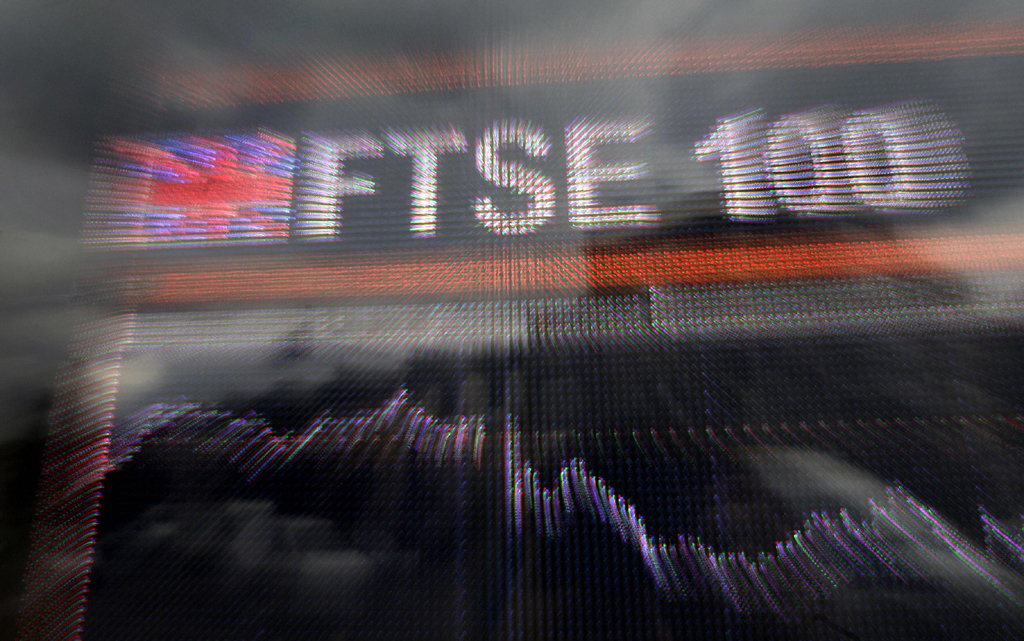Sterling rally hurts FTSE 100 as Brexit and growth anxieties dominate

LONDON: Concerns about growth, doubts about a U.S.-China trade truce, and a rising pound drove Britain's top stock index down on Tuesday, while precious metal miners regained their lustre as gold prices rallied.
The FTSE 100 closed down 0.6 percent with the stronger sterling dragging on its exporter-heavy constituents.
Still, the market outperformed its euro-zone peers due to gains in its heavyweight oil and gold mining sectors and a flight to defensive stocks, popular at times of economic turmoil.
But as investors' optimism on a deal between U.S. President Donald Trump and Chinese President Xi Jinping to delay tariffs evaporated, concerns about Brexit returned.
The currency rose as much as 0.9 percent after an adviser to the European Union's highest court said Britain should be allowed to unilaterally revoke its departure notice.
Investors were on tenterhooks as the British parliament began five days of debates on Prime Minister Theresa May's Brexit deal ahead of a crucial Dec. 11 vote.
"We're fairly neutral on the UK, but we're playing it mainly through passive exposure - because you get the benefit of the currency if it weakens," said Rory McPherson, investment director at Psigma Investment Management.
The quarterly reweighting of the indexes also roiled some shares, with Hiscox expected to oust Royal Mail from the blue chips and storied carmaker Aston Martin set for promotion to the midcap index just two months after its IPO.
Final moves will be announced by the LSE on Wednesday based on market cap at Tuesday's close.
BAE Systems, down 5.5 percent, was one of the biggest decliners after Deutsche Bank cut its price target on the stock. Ferguson, previously known as Wolseley, lost 4.3 percent after the world's largest heating & plumbing equipment supplier published first-quarter results.
While trading profit was in line with expectations, analysts said the performance of the U.S. business, the company's largest market, disappointed.
Mining stocks such as Antofagasta and Glencore, down 3.5 and 1 percent respectively, fell as copper prices eased back on doubts over how fragile a trade truce struck at the G20 on Saturday was.
Randgold Resources and Fresnillo both rose more than 3 percent as the gold miners benefited from investors' bid for gold, considered a safer store of value in volatile markets.
Gold prices climbed to over a one-month high as the dollar slipped.
Energy shares were a relatively bright spot, with oil major BP rising 1 percent and Shell ending little changed. Both ended off earlier highs as worries over trade curbed gains on crude oil prices.
Thomas Cook shares fell as much as 16.9 percent to hit their lowest level in six years amid growing concerns about the tour operator's debts.
The shares closed 3.9 percent lower after an extremely choppy session as investors braced for the stock to be demoted from the midcap index. Its credit default swaps soared and bonds fell to all-time lows.
The tour operator and travel company has lost 60 percent in the past week since its second profit warning in as many months.
Shares in construction and engineering firm Kier fell 4.1 percent after Canaccord Genuity cut its rating on the stock to "hold" from "buy" after the company's recently announced rights issue.
"After fees, a worse than previously assumed working capital outflow and confirmation of the average debt level using daily averages, the annualised benefit from the rights issue is arguably only around 90 million pounds," the analysts wrote.
Online financial trading firm IG Group, down 9.7 percent, was among the biggest decliners on the FTSE 250 after it forecast a drop in trading revenue.
Ted Baker fell a further 8.4 percent, extending its losses from Monday when an employee petition criticising the CEO's policy of hugging sent the stock down 15 percent.
Consort Medical shares plunged 21.5 percent after the pharmaceutical firm's full-year pre-tax profit was dented by about 3 million pounds due to delays with Mylan in their Wixela drug programme.
The stock suffered its worst day in a quarter-century.
Overall, analysts are downgrading their estimates of domestic U.K. stocks' earnings at the fastest rate since the Brexit vote of June 2016.
"We feel there's better trades to be had than being exposed to U.K. domestics. It could be a fantastic trade if we get a good deal, but at the moment they're very beaten down," said Psigma's McPherson.























Comments
Comments are closed.